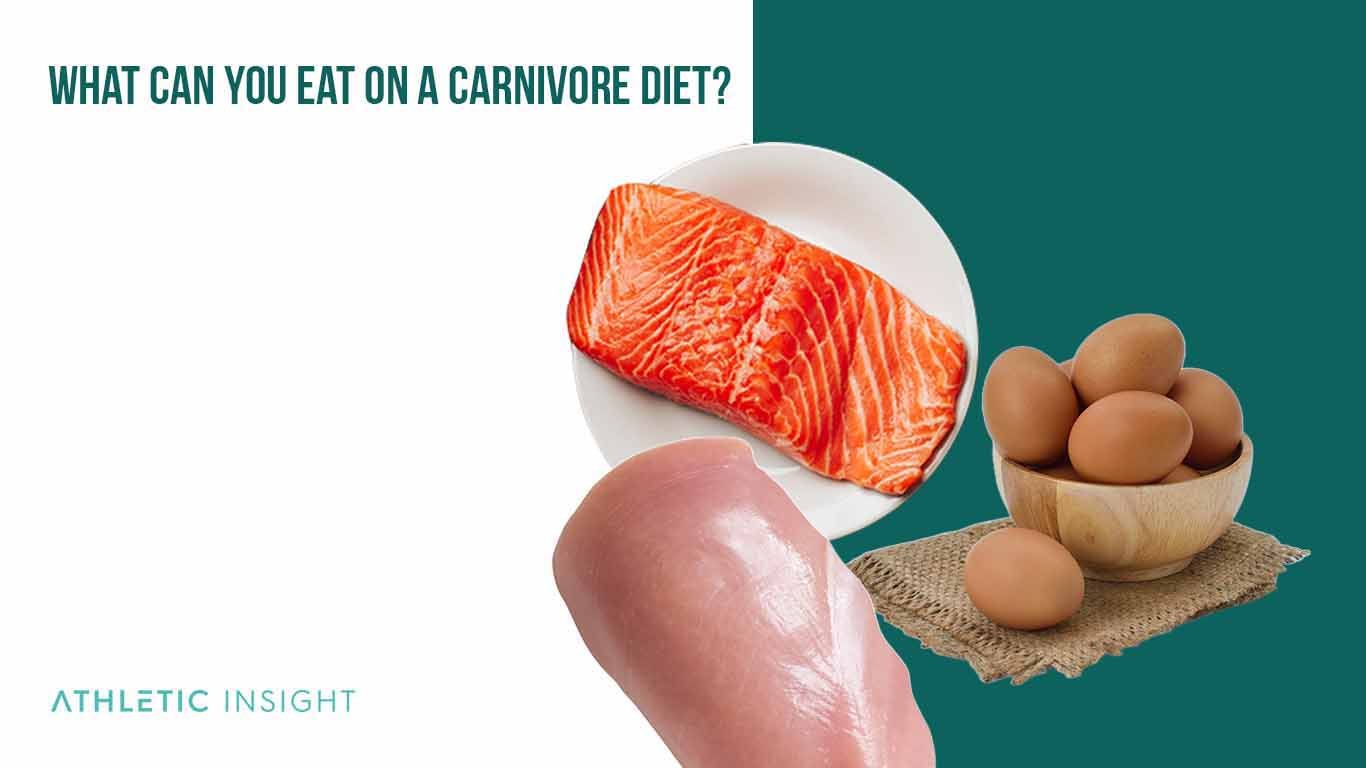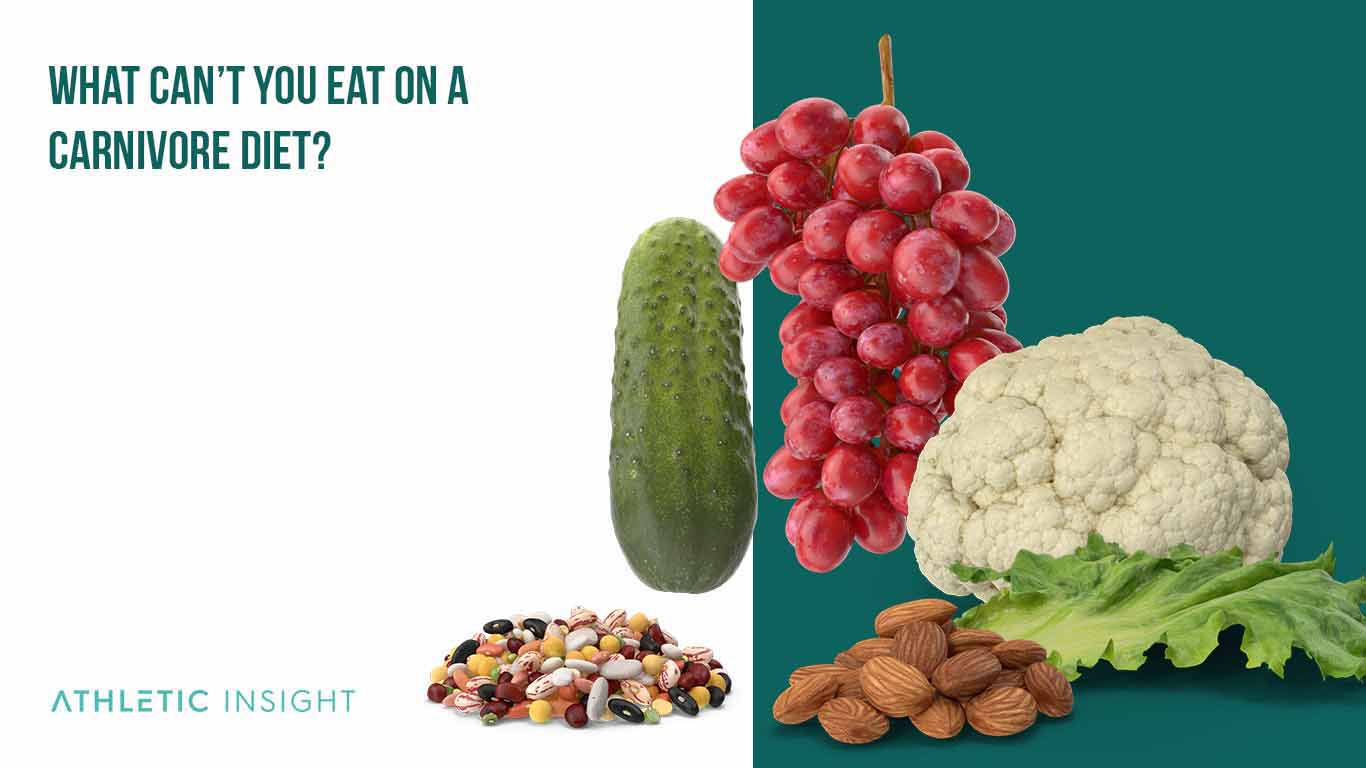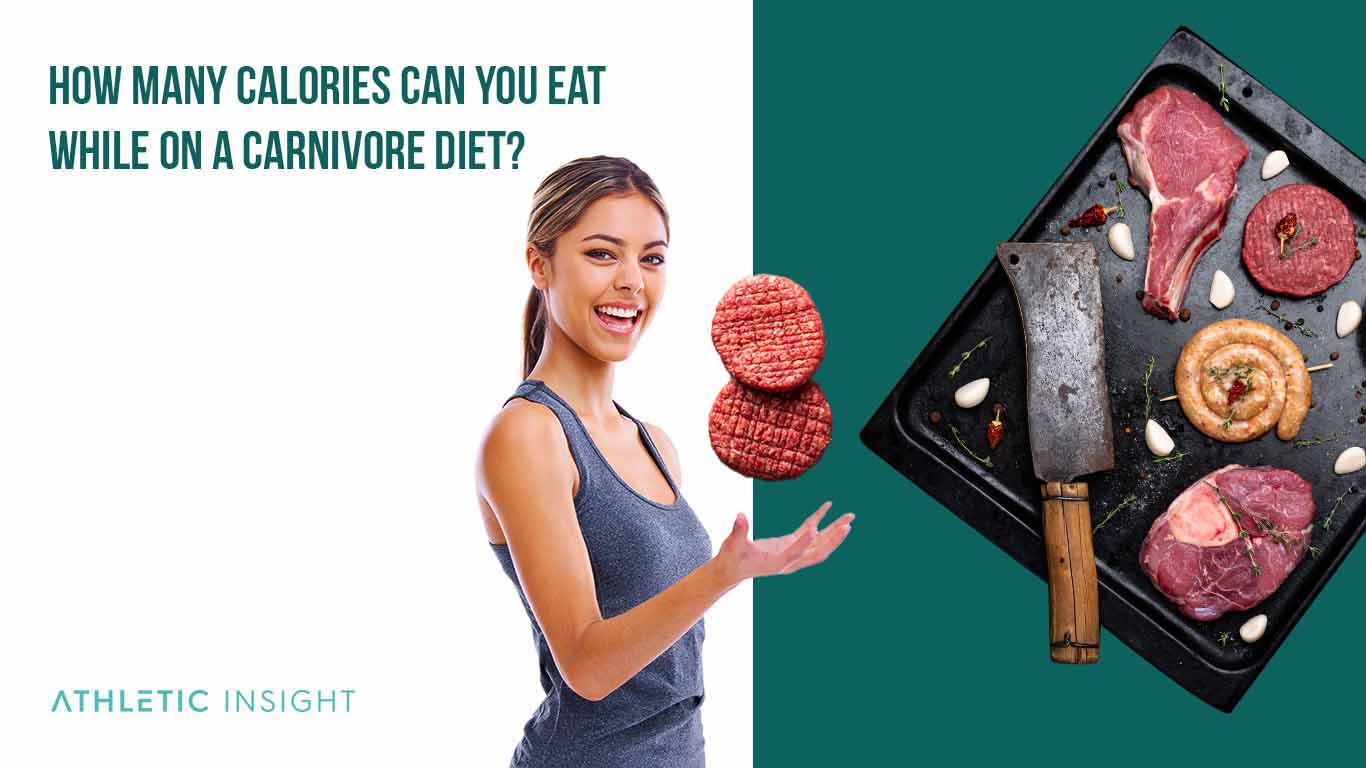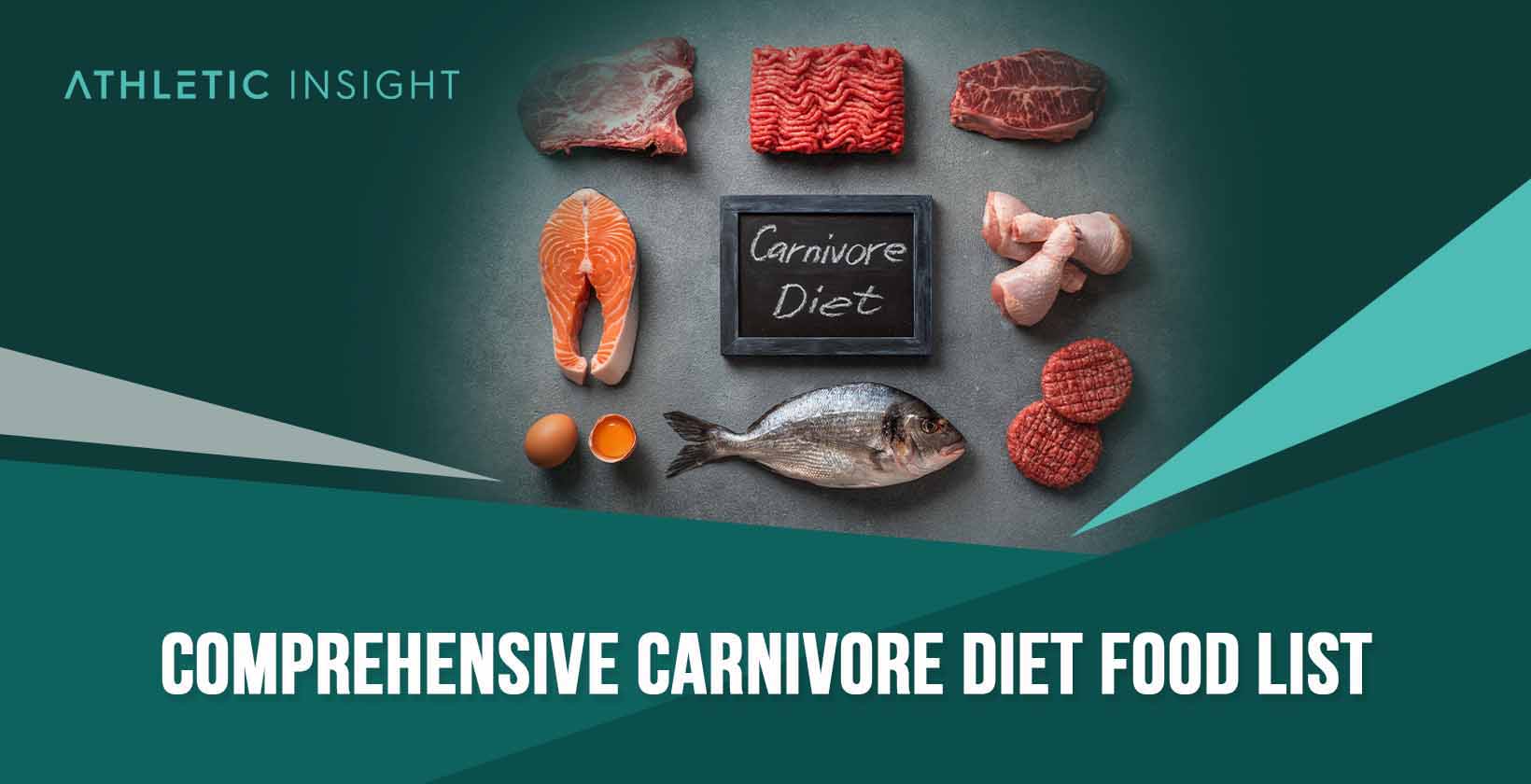The carnivore diet is not simply meat-only. However, it is primarily centered on a meat diet. The carnivore diet focuses on eating meat, fish, eggs, and a small selection of other animal products. The goal is to consume no carbohydrates while on the carnivore diet.
As an animal-based diet, the carnivore diet food list contains foods that come from animals. If you’re wondering what to eat on the carnivore diet, it’s essentially an all-meat diet.
What is the carnivore diet and why would one follow it? The carnivore diet consists of eating meat at every meal, some additional animal products like dairy, and consuming lots of water. Because you exclude all other food groups like vegetables and grains, carnivore diet benefits include weight loss, improved mood, and even blood sugar regulation.
The carnivore diet meal list contains food that helps with weight loss, blood sugar regulation, and mood swing regulation. A restrictive meal list does not allow for anything other than animal products.
What Can You Eat on a Carnivore Diet?
What does carnivore eating require? The meal list with the carnivore diet includes eating almost only meat. You can eat various meats and some related animal products.

The foods you can eat on the carnivore diet include the following.
- Meat
- Fish
- Eggs
- Other animal products
- Low-lactose dairy
- Water
Meat and fish include all types of meat and fish except for anything breaded. You can eat eggs in all styles.
Other animal products include lard, bone broth, and bone marrow.
Low-lactose dairy includes small amounts of products such as butter, hard cheese, heavy cream, and similar items.
If you season your meat, avoid seasonings that contain carbs. Salt and black pepper are mostly recommended.
To stay hydrated, drink plenty of water. Other beverages like soda and alcohol are not allowed on the carnivore diet.
As long as you follow the carnivore diet food list below, it is pretty easy to stick with it. However, make sure that you only follow a carnivore meal plan for a short, defined time. It is not a diet food list to follow for prolonged periods.
1. Meat
Meat is the primary food included in the carnivore diet. Anyone on the carnivore diet eats meat primarily for every meal. The specific meat products you can consume include the following.
- Beef
- Pork
- Chicken
- Turkey
- Lamb
- Bison
You can eat any cut of meat from these animals. Organ meats are recommended for extra nutrients and vitamins.
Consuming meat is beneficial because it is full of protein. It contains essential nutrients like iodine, zinc, iron, and fatty acids. It’s also a significant source of niacin and selenium.
In the carnivore diet, you should eat meat with every meal. That means at least three servings of meat each day.
The meat will make up most of your daily protein intake. The carnivore diet calls for the consumption of one gram of protein per pound of body mass. Someone who weighs 170 pounds will consume 170 grams of protein daily.
The carnivore diet also calls for a high fat intake, almost equaling the protein intake. 70% to 80% of calories come from fat on the carnivore diet meal plan. Much of that fat will come from these meats.
2. Fish
Even with a strict carnivore diet, you can eat a variety of meat. You can consume fish of all kinds, including the following.
- Salmon
- Sardines
- Crab
- Lobster
- Tilapia
- Cod
- Gerring
- Mackerel
- Halibut
- Clams
- Oysters
- Shrimp
- Haddock
- Tuna
Eating lots of fish gives you access to protein-rich meat and good fats necessary for normal body function.
Consuming fish is vital for getting plenty of good omega-3 fatty acids and essential vitamins. It’s full of riboflavin, calcium, and phosphorus. Fish contain minerals like iron, zinc, magnesium, and potassium.
You can consume one serving of fish per meal on the carnivore diet. Since most of your protein comes from meat, you will eat lots of fish to get a good amount of protein each day.
Fish will be one of your primary sources of good fat for the carnivore diet meal list. Consuming plenty of fish ensures you get plenty of fat in your diet.
3. Eggs
Eggs are a good supplement for other meat options, especially in the morning. You can consume eggs in any style.
- Scrambled
- Fried
- Poached
- Hard-boiled
Eggs are vitamin-rich foods packed with protein and essential minerals. They also contain many trace nutrients and healthy fats.
You can eat four to six eggs at every meal on the carnivore diet. Each egg contains about five grams of fat and six grams of protein.
Your protein intake from eggs will vary depending on how many eggs you eat daily. If you eat four eggs at every meal, eggs will make up 144 grams of protein.
Eating four eggs at every meal will make up 120 grams of your daily fat intake.
4. Other Animal Products
There are other animal products you can eat as well on the carnivore diet. Some of those animal products include things like lard, bone marrow and bone broth.
- Lard
- Bone marrow
- Bone broth
These animal products are primarily used for making soups or other meals. You can also consume bone broth on its own as a beverage.
Drinking bone broth helps aid digestion and support gut health. Consuming bone marrow gives you more collagen and glucosamine. Eating small amounts of lard instead of butter means consuming about 20% less saturated fat.
Small amounts of these animal products are allowed with every meal. For example, you can cook your eggs in lard instead of butter in the morning and add bone broth to your lunch.
These foods will contribute a significant helping of protein to your diet each day, although the majority will still come from the red meats you consume.
Eating animal products like lard will give you access to a small percentage of your needed daily fats.
5. Low-Lactose Dairy (in Small Amounts)
The carnivore diet allows for small amounts of low-lactose dairy in your daily meal planning. Low-lactose dairy includes items such as these listed below.
- Butter
- Hard cheese
- Some yogurt
- Heavy cream
Hard cheese options include the following cheeses.
- Parmesan
- Swiss
- Sharp cheddar
- Gruyere
- Pramigiano
- Pecorino
- Grana Padano
Consuming some low-lactose dairy gives you access to extra healthy fats that you need in a carnivore diet plant. It also contains high amounts of protein, vitamins, and minerals.
The carnivore diet allows for a limited amount of dairy consumed daily. That means that less than one serving should be consumed with each meal. Ideally, you will only eat dairy once a day if you add it to your diet.
Only a tiny percentage of your daily protein and fat intake will come from dairy products because you are allowed only a small helping of them.
6. Water
It’s critical to stay hydrated while on the carnivore diet. Water is the primary beverage that you drink while eating the all-meat diet.
Water is one of two beverages you are allowed to eat on the carnivore diet. Avoid drinks like tea and coffee that use water but are plant-based. Do not drink carbonated or flavored water.
The only thing you can drink while on the carnivore diet is bone broth, which will help boost your protein and fat intake daily.
What Can’t You Eat on a Carnivore Diet?
There are plenty of food items you are not allowed to eat while on the carnivore diet. Knowing these foods by heart will make it easier to avoid accidentally adding them to your shopping list.

You are not allowed to eat these foods on the carnivore diet.
- Vegetables
- Fruits
- High-lactose dairy
- Legumes
- Nuts and seeds
- Grains
- Alcohol
- Sugars
- Beverages other than water
1. Vegetables
The carnivore diet doubles as an extreme elimination diet for anyone dealing with food sensitivities. Removing vegetables from your diet allows you to discover any potential food allergies you might have.
Specific vegetable categories, like nightshades, are commonly the cause of food sensitivity issues.
Other vegetables, like broccoli, have natural defense systems that include the release of anti-nutrients when cut. Anti-nutrients run the risk of causing digestive harm.
Vegetables also add unnecessary calories that are reserved for meat.
2. Fruits
Despite their many health benefits, fruits typically have a lot of sugar. The carnivore diet regulates blood sugar, and fruit can mess with that.
Eating fruit while on the carnivore diet could cause your blood sugar to spike and remove you from the state of ketosis.
Ketosis is the state your body enters when it needs to start burning fat in place of carbs for energy.
3. High-Lactose Dairy
High-lactose dairy is a common cause of food intolerance. Since the carnivore diet doubles as an elimination diet, eliminating high-lactose dairy can help you discover if you’re lactose intolerant.
Some people allow more dairy than others when on the carnivore diet. Despite being high in fat, dairy is also rich in milk sugar. Sugar is avoided in the carnivore diet to regulate your blood sugar.
4. Legumes
Legumes, like peanuts, are rich in lectins. Lectins are proteins that bind to carbs. Carbs are entirely avoided in the carnivore diet.
Lectins are also the cause of some digestive issues in humans. They don’t break down easily in the gut because they thrive in acidic environments.
5. Nuts and Seeds
Nuts and seeds are two of the most common causes of food sensitivities. They are also common allergen agents.
Removing nuts and seeds from your diet for the carnivore meal plan will show if you are experiencing any symptoms of nut or seed intolerance.
Additionally, nuts and seeds are not animal products. Since the carnivore diet focuses on consuming only animal products, nuts and seeds are not included.
6. Grains
It’s essential to avoid grains while on the carnivore diet. Grains can be found in the following items.
- Rice
- Oatmeal
- Whole wheat
- Pasta
- Millet
- Barley
- Popcorn
For one thing, grains are full of carbohydrates. The carnivore diet seeks to send the human body into ketosis by completely eliminating carbohydrates from the meal plan.
Grains are also filled with lectins, that same protein mentioned earlier that binds to carbs. Eating grains can slow weight loss and take your body out of ketosis.
7. Alcohol
Drinking alcohol is not permitted on the carnivore diet. There are a few explicit reasons you should avoid alcohol if you want to see good results from your time on the carnivore meal plan.
- Alcohol is full of sugar and carbs
- Alcohol hinders weight loss
- Alcohol is made from grains
Another reason to avoid alcohol on the carnivore diet is that your body will metabolize the alcohol much faster, making it easier for you to end up drunk.
The carnivore meal plan eliminates all glucose from your diet. Glucose is essential for slowing down your body’s ability to metabolize alcohol, making it more difficult to get drunk.
8. Sugars
Sugar is one of the most prominent food groups to avoid while on the carnivore diet. Sugar is present in other foods, like fruits and vegetables, and can wreak havoc on the digestive system.
One of the main goals of the carnivore diet is to regulate blood sugar. To do this, your body needs time. To give it time, you need to cut sugar from your diet.
Some sugar occurs naturally in the low-lactose dairy allowed in the diet. That is why only small portions of dairy are recommended.
9. Beverages Other Than Water
Water is the only beverage you are allowed to drink on the carnivore diet, apart from bone broth. You should avoid all other drinks like the following beverages.
- Fruit juice
- Soda
- Milk
- Alcohol
- Tea
- Coffee
- Vegetable juice
These beverages are all loaded with things that you can’t eat while you’re doing the carnivore diet. In particular, these beverages contain sugar.
Avoiding these beverages and sticking only to water on the carnivore diet is the recommended way to stay hydrated during the carnivore diet.
How Many Calories Can You Eat While on a Carnivore Diet?
Counting calories is not of primary concern when performing the carnivore diet. As long as you get enough protein and fat daily, counting calories is unnecessary.

You should aim to reach common daily calorie goals while doing the carnivore diet.
For women, eating between 1600 and 2000 calories a day is recommended. For men, it’s suggested to consume 2000 to 3200 calories each day.
While you should aim to meet daily recommended caloric intake goals, you don’t need to make counting calories your top priority with the carnivore diet.
How Much Daily Fat Intake Do You Need While Doing Carnivore Diet?
During the carnivore diet, consuming a large amount of fat daily is essential. You can consume up to one gram per pound of your body weight.
If your goal with the carnivore diet is to lose weight, consuming less fat and more protein will help you meet your weight loss goals.
As a general rule of thumb, you should get 70-80% of your daily calories from good fats. Good fats in the carnivore diet come mainly from fish and red meat. Some come from low-lactose dairy.
Your daily fat intake can exist in flux. You do not need to consume precisely 70% of calories in fat every day. If you consume 70% one day and 75% the next day, you will still be successful within the boundaries of the carnivore diet.
It’s essential to get enough fat in your diet during the carnivore diet because, in ketosis, your body uses fat for energy instead of carbohydrates.
Typically, energy comes from stored carbs. Since carbs are removed from the carnivore diet, your body needs a supplement to keep up a good energy supply.
When no carbs are present, the body turns to stored fat to make energy. Replenishing those stores gives your body something to use in place of carbs.
The good fats you consume in the carnivore diet are also essential sources of fat-soluble vitamins like vitamins A, E, K, and D.
How Much Daily Protein Do You Need While Doing Carnivore Diet?
Protein is the spotlight item in the carnivore diet. The amount of protein you consume daily will vary depending on factors like your body size and physical activity.
As a general rule, about 20-30% of your daily calorie intake will come from protein. It’s crucial to consume different cuts of meat, mixing lean and fatty cuts to ensure a balanced diet.
The carnivore diet also allows you to eat one gram of protein per pound of body weight. As mentioned earlier, someone who weighs 170 pounds would consume 170 grams of protein daily.
Fattier cuts of meat have more calories, meaning you would eat less. Leaner meat has less fat, making you need to eat more.
Protein is the main focus of the carnivore diet because protein-rich foods are also dense in other nutrients. Protein takes longer for your body to digest, so you stay feeling full for longer.
Finally, protein is essential for building lean muscle mass. The amino acids in protein build and repair muscle, bones, and enzymes.
Is the Carnivore Diet Food List Expensive?
The carnivore food list is made up mostly of meat. Meat is typically more expensive than other food items like vegetables and fruit.
Eggs are not an expensive food item, and some dairy products are reasonably priced. These items will not cost you very much at the grocery store.
Fish and red meat will be the most expensive items on the carnivore diet list.
Sample Carnivore Menu for One Week
The carnivore menu for one week consists of lots of meat rich in fat and protein. Since these meats are also rich in other nutrients, like essential vitamins and minerals, you should get all of your necessary nutrients each day on the carnivore diet.
When you’re making your meal plan for the week, make sure you plan to consume enough protein and fat each day.
Here is a sample carnivore menu.
- Breakfast: two eggs cooked in lard or butter with cheddar cheese, sandwiched between two sausage patties
- Lunch: large salmon fillets cooked in butter with a fried egg on top
- Dinner: Steak
When making a carnivore diet menu, it’s critical to know how many grams of protein and fat you consume each day. Then you can determine how much meat you need to eat at every meal.
Does Red Meat Increase Your Risk of Cancer?
Red meat can increase your risk of certain cancers. It’s full of nitrates and nitrites, which are cancer-causing chemicals.
The consumption of too much red meat is linked to coronary heart disease and stroke. If you choose to follow a carnivore diet, ensure that you eat a variety of meats. Try to avoid a red meat-only diet.
Red meats can also increase your risk of diabetes and cardiovascular disease.
Is Eating Only Protein Dangerous?
If eating too much red meat can be dangerous, is a carnivore diet healthy? For a short period, a carnivore diet can have significant health benefits.
The carnivore diet and weight loss are closely linked. It’s not a beef-only diet, so variety in your meat is possible.
The carnivore diet can help you eliminate problem foods from your diet and balance your blood sugar.
Since meat is loaded with other nutrients, like vitamins and essential minerals, you’re still consuming plenty of nutrients daily.
Which Meat Is the Healthiest?
The healthiest meat options are as follows.
- Chicken
- Beef
- Salmon
- Tuna
- Turkey
- Venison
- Pheasant
- Ostrich
- Bison
For maximum health benefits, avoid processed meats because they can lead to a higher risk of health problems such as colon cancer. Processed meats also have higher levels of sodium and saturated fat and can cause heart disease and type 2 diabetes.
How To Create a Carnivore Diet Plan
On the carnivore diet, you can eat an average amount of calories. Women can consume 1600-2000 calories daily, and men can consume 2000-3200 calories daily.
70-80% of your caloric intake should be from good fats, and 20-30% of your caloric intake should be from protein.
You can supplement any remaining calorie needs with small amounts of low-lactose dairy and lots of bone broth.
The carnivore diet food list can be a little expensive. You can find numerous diet recipes online, as well as snack ideas.
Since the carnivore diet depends on lots of protein, you shouldn’t need too many snacks throughout the day. Useful snack options include:
- Pork rinds
- Bone broth
- Beef sticks
- Deli meat
- Boiled eggs
- Tuna
- Hard cheese
You can even eat cheesecake on a cheat day if you’re craving something sweet.
Because there is no scientific evidence backing the usefulness of the carnivore diet, it is not generally recommended by doctors.
Many doctors believe that the carnivore diet poses the risk of making digestive issues worse. Since it’s a high-fat diet, it could also increase the risk of bad cholesterol.



